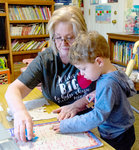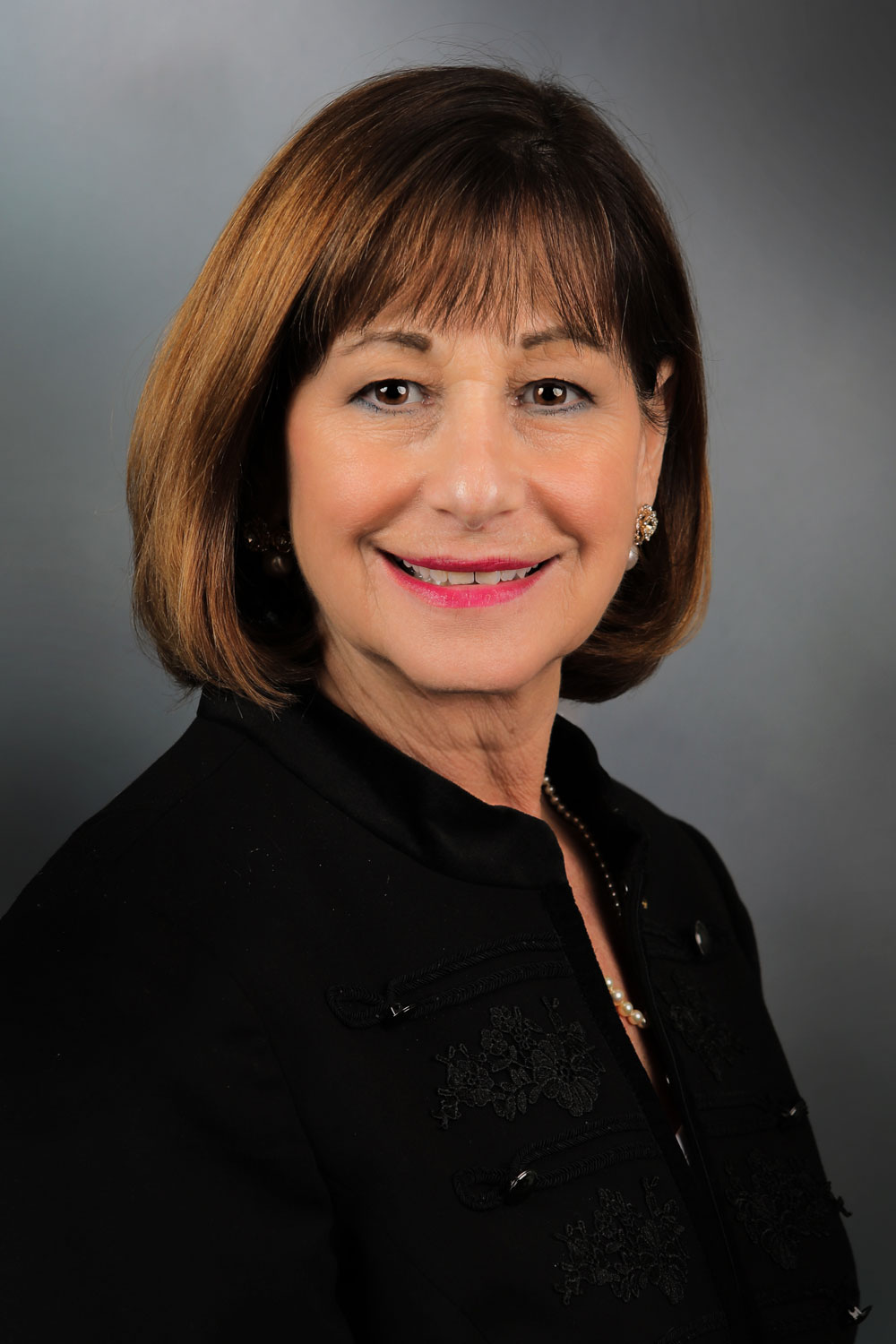



Second in a two-part series looking at “Nathan’s Law,” a recently passed piece of legislation that puts new limits on both licensed and unlicensed daycare facilities in the name of child safety and the “unintended consequences” it’s having on both local providers and families.
On the surface, Nathan’s Law, which passed the Missouri House and Senate in the spring and was signed into law by Gov. Mike Parson in July, is a good thing.
Attached to HB 397 as a substitution for another Senate bill addressing the same issue, Nathan’s Law was designed to further limit the number of children allowed in unlicensed child care centers in hopes of increasing the safety of the thousands of children — particularly infants — who are sent to daycare across the state.
Over the past four months, Nathan’s Law, which went into effect on Aug. 28, has done that, but along the way, the new regulations have made it more difficult for parents to find quality child care, especially in rural areas, by forcing licensed caregivers, who are already regulated and monitored, to raise their rates, turn away families, or in at least one case in Perry County, close their doors for good.
These problems can add up, leaving families with little or no recourse, and may even have a detrimental effect on child care.
| Rep. Rick Francis |
“There’s already a shortage,” said Rep. Rick Francis (R-Perryville), one of several members of the Missouri House of Representatives who are working to make changes in the new law.
From their point of view, and that of their constituents, it seems like a law of “unintended consequences,” a phrase often repeated by those affected by the new regulations.
The problem centers on language limiting the number of children allowed in child care facilities. Before Nathan’s Law was passed, in-home, unlicensed day cares were allowed to serve up to four children, in addition to an unlimited number of related children.
Now, these providers are limited to six, exempting only children living “in the caregiver’s home who are eligible for enrollment in a public kindergarten, elementary, or high school” from being counted toward the six-child limit. Caretakers are also allowed to care for no more than three children younger than 2 years old. Those same rules apply to licensed caregivers, meaning that, in many cases, they lost seats and related income.
— Alicia Unverferth, owner of Little Explorers Learning Center
“Many of us voiced the common concern that this new law actually is doing the exact opposite of what it is intended to do,” said Alicia Unverferth, owner of Little Explorers Learning Center in Perryville, who has been spearheading a group of local providers seeking to enact changes in the new regulations. “We fear many upcoming providers will choose the unlicensed option instead of becoming a licensed provider, thus putting children into unregulated facilities.”
Child care in Missouri is regulated by Department of Health and Senior Services, which maintains a log through its Section for Child Care Regulation of child deaths that have occurred in child care programs.
Since September 2009, the SCCR has records of 49 child deaths that occurred in child care settings. Of those, 15 occurred in licensed child care centers and 34 occurred in unlicensed child care.
Those numbers, said DHSS spokeman Lisa Cox, represent only the deaths the department is aware of, stating that “there is no requirement that child deaths be reported to the Section for Child Care Regulation.”
While Nathan’s Law seeks to make child care safer, in reality, Unverferth said, it’s making things difficult for licensed caregivers and working families.
A group of state representatives, spurred by Unverferth’s group and several others across the state, hope to find a solution during the next legislative session, which begins on Jan. 8.
“I want people to know that we’re going back to make some changes to try and fix the mistake that we made,” said Rep. Rick Francis (R-Perryville).
In its original iteration, HB 397 had nothing to do with child care regulation.
“It had nothing at all about child care,” said Rep. Mary Coleman (R-Arnold), who sponsored HB 397. “What was passed included language protecting sex trafficking victims and creating extra tools for law enforcement. It had none of Nathan’s Law at all.”
Until it reached the Senate, where Sen. Jill Schupp (D-Creve Coeur) proposed adding Nathan’s Law as a substitution for another Senate bill. HB 397 passed the Senate by a unanimous vote. Back in the House, with Schupp’s addition in place, the bill passed once again, by a 96-39 margin. In its original form, it passed the House 147-10. Parson signed the bill into law on July 11.
| Rep. Dale Wright |
Francis and Rep. Dale Wright (R-Farmington) both voted in favor of the bill.
Francis, who once referred to Nathan’s Law as “a good law,” has since changed his opinion, based largely on more research into the matter and its effect on licensed providers.
Francis shared that, in doing his “homework” on the bill, he discovered that among the eight states surrounding Missouri, related children were always counted against the number of children a daycare is allowed to serve.
“We’re the only ones that, in the past, have not,” Francis said. “It went to the Senate and that’s where it got changed. When we got it back, the sponsor didn’t tell us that there had been changes to it.”
Despite any other issues, both Francis and Wright agreed that the new regulations were rolled out a bit too quickly.
“I just wish they’d had some common sense and let us at least abate it for a year or so, so people can figure out what they need to do,” Wright said.
The changes were outlined in a message sent to all licensed providers in early August, leaving licensed providers scrambling to adjust with the first day of school looming.
— Cheryl Layton, owner of Country Kids Daycare in Brewer.
“That letter was like a bomb dropped,” said Cheryl Layton, owner of Country Kids Daycare in Brewer. “We had 26 days.”
The new regulations had an immediate effect.
“This affected my business,” Layton said. “I lost two children going back to school, and I can’t replace them. That’s a drop of $200 a week. That hurt. Bills are still the same.”
After receiving the message from the state, Unverferth contacted attorney Art Pistorio and, along with a group of other concerned caregivers, reached out to Francis and Wright seeking possible solutions.
“During the meeting, the providers shared an inside look at what type of impact this new law will have on our small businesses,” Unverferth said. “The impacts ranged from current children being displaced, delayed start dates for future enrollees, daily tuition increases, and waiting lists that are already extremely long and made it challenging for parents to find child care even before this law took effect.”
Unverferth said Francis and Wright were “both very attentive to our concerns and repeatedly assured us that they would continue to work closely with us, while helping to search for a solution.”
With the bill already signed into law, they learned there was little to be done until the next legislative session, which is scheduled to begin Jan. 8.
Francis said he is squarely behind efforts to readdress the situation.
“After we got into it and we had all those meetings and all those daycare providers were saying that they were losing money, it was forcing people to go to unlicensed daycares, I don’t think [Nathan’s Law] is a good law,” Francis said. “”Early on, I was like, ‘Yeah, this would be good; tighten up and make all our daycare homes safe for kids,’ but [Nathan’s Law] not doing what I thought it would do. It had unintended consequences.”
After meeting with Unverferth and her group of child care providers, Francis and Wright wrangled an opportunity for Unverferth and Pistorio, along with several other legislators, child care providers and parents to testify before members of the House General Laws Committee during a special session in Jefferson City in September.
Among those testifying was Lisa Terry, a mother of three and owner of Lisa’s Little Ones, a licensed in-home daycare in Loose Creek, an unincorporated community in Osage County about 8 miles east of the state capital.
“I have been drastically affected by this change in child care from House Bill 397,” Terry said. “I have had to tell families that I can no longer care for their children to accommodate for my own children. I had to tell future parents that I could no longer accept their unborn children because the spots that I had for them no longer exist.”
Terry also stated that because of the lost revenue, she would also have to raise her rates by as much as 12 percent and pointed out that under the new regulations, unlicensed daycares in effect receive two additional spots while licensed providers are given no leeway.
“The question I have for you is why can’t we have two additional spots?” Terry said. “We go through the training, the licensing, the inspections to care for more children than unlicensed child care providers, but they get two spots to accommodate the change. We have received nothing.”
According to Cox, licensed in-home daycare providers may request a variance for school-aged children that live in the home — the same latitude given to unlicensed providers — on a “case-by-case basis through the use of our variance authority.”
Responding to questions from committee members, Unverferth said that, even though those variances are available, there are still questions that need to be answered.
“My concerns with that is we’ve not been given any definite information,” Unverferth said. “Are these variances permanent? When will these variances expire? Is this something solid we have to stand on? And then there’s also the issue of my daughter that’s 3 years old. A variance does not include her.”
Unverferth also shared stories from some of her colleagues indicating that had these regulations been in place when some of her fellow providers opened their businesses, they might have made a different choice.
“They would not have ever opened their doors,” Unverferth said. “It was a huge incentive for them to be able to keep their children with them throughout the day. I think the variance for the school-aged children is very beneficial, but we’ve also got a problem with the children that are ages 4 and below.”
| Rep. Sara Walsh |
 |
| Sen. Jill Schupp |
In the wake of the September hearing, Rep. Sara Walsh (R-Ashland) prefiled HB 1257, which would allow in-home licensed child care facilities to qualify for the exemption for related children when calculating the number of children in care in the home.
Francis said he’s working closely with Walsh on the bill.
“I’ve been working with Sara to go back and make changes that I think are better for daycares and for kids,” Francis said. “As it is, I think [Nathan’s Law] is going to force people to take their kids to unlicensed, untrained places for people to watch their kids. That’s scary.”
The bill is likely to face an uphill battle. Schupp, who bas filed bills similar to Nathan’s Law in previous sessions, is opposed to rolling back restrictions, saying it all comes down to safety.
“We have rules and laws in place because we want to make sure that our kids are always in a safe environment,” Schupp said, “so we’re doing everything that we can to make sure of that. That’s why the law was passed.”
Schupp said that not counting related children toward the total allowed in a licensed daycare is an unacceptable risk.
“Not counting the numbers means that you’re putting the kids whose families are paying you and depending on you to provide a safe environment — you’re putting their kids in jeopardy,” Schupp said.
Schupp acknowledged the possibility that the new regulations could possibly push more children into unlicensed daycare, but said “being unlicensed is not illegal in the state of Missouri.”
“We have rules around people who provide daycare in their home and they are subject to those rules.” Schupp said. “People who are paying for licensed providers — or unlicensed — need to feel confident that there are laws and rules in place governing the number of children that should be in a person’s care.”
— Sen. Jill Schupp, on unlicensed child care providers
In addition to Schupp’s reluctance to consider changes in Nathan’s Law, legislators will also likely have to contend with Parson, who lent his support to the bill in the wake of the death of an infant in the district he once represented as a senator.
“Just before last session, he came to me and he said, ‘Jill, I’d like to help you get Nathan’s Law passed. We want to help you, so let us know what we can do,’” Schupp said. “When he became governor, I worked with his office and kept them apprised and abreast of everything we did with the law.”
Francis said that level of support would likely prove to be a major obstacle for any legislation.
“One thing I know is that there are Senators that will filibuster and make it extremely difficult,” Francis said
In the end, Schupp said that she shares a common goal with both parents and child care providers.
“We want all of our kids to be cared for and to be well cared for and that’s why this bill was put into place,” Schupp said. ”Frankly, a lot of babies, a lot of young children have lost their lives over the years. And that’s why this bill has been worked on and fought for and re-examined so hard for so long. We wanted to get it right.
“We’re not trying to hurt anyone’s business. We want to make sure these businesses are running safely and we think this law is the way to go about doing that.”
During her testimony before the House committee, Walsh took a different stance.
“Because of this legislation, many children are being put in an unsafe position,” Walsh said. “And if there was a child care desert before, now kids are getting kicked off the child care oasis.
“We’re here, government of, by and for the people. And so when you’ve got the outcry from the people that we’ve had for the unintended consequences of this legislation, it is so important that we hear the people and that we work to fix things because we are public servants and we work on behalf of the people.”